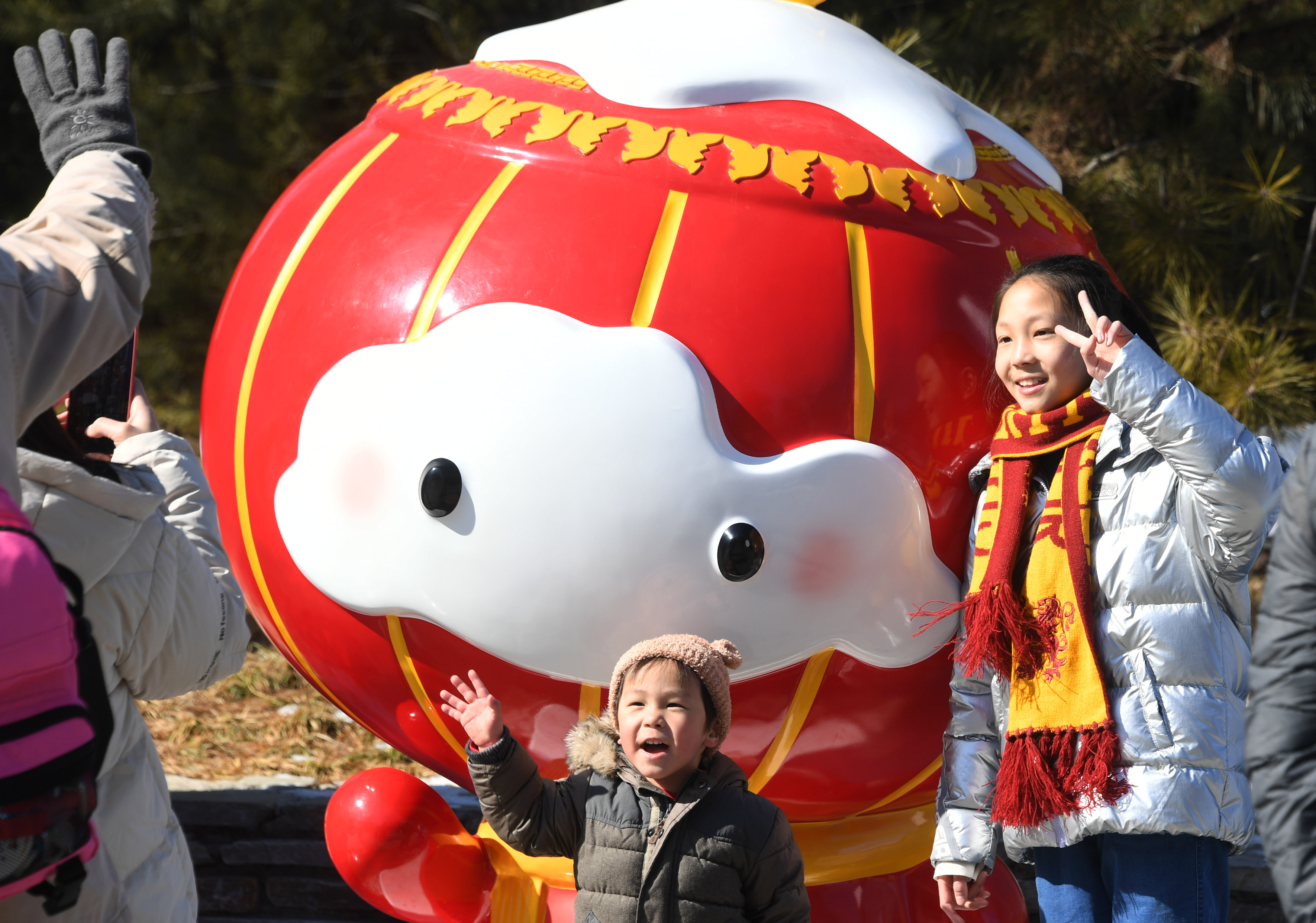2022 Winter Paralympics: Lessons in life
- By Eugene Clark
 0 Comment(s)
0 Comment(s) Print
Print E-mail China.org.cn, March 2, 2022
E-mail China.org.cn, March 2, 2022

From March 4-13, Beijing will host the Paralympic Winter Games. The event will bring together 600 amazing athletes competing across 78 events in six sports: alpine skiing, cross-country skiing, biathlon, snowboarding, para ice hockey and wheelchair curling. Two of the venues to be used during the Games — the National Indoor Stadium and the National Aquatic Centre — are legacy venues from Beijing 2008.
People with disabilities have participated in the Games since 1904 when German-American gymnast George Eyser, who had an artificial leg, competed in the 1904 Summer Olympics. Hungarian Karoly Takacs competed in shooting events in the 1948 and 1952 Olympics, using his left hand after his right one was badly injured. In 1952, Danish athlete Lis Hartel won silver in the dressage event despite being partially paralyzed as a result of contracting polio as a child.
The first internationally organized athletic event for athletes with disabilities that coincided with the Olympic Games took place on the opening day of the 1948 London Summer Olympics. The event was then called the International Wheelchair Games and involved injured servicemen and women who took part in archery.
In 1976, UNESCO established the right for people with disabilities to participate in sports and physical education. The first Paralympic Winter Games were held in ?rnsk?ldsvik, Sweden. This was the first Paralympics in which multiple categories of athletes with disabilities could compete, and has since been held every four years. Originally taking place in the same year as the Summer Games, the Winter Paralympics have been held in even-numbered years between Summer Olympics since 1994.
Today, the International Paralympic Committee (IPC) is the global governing body of the Paralympic movement and includes 176 national Paralympic committees in addition to international sporting federations. The federations represent the various sports and provide technical guidance for competitions and training venues.
The motto for the Paralympic movement is "Spirit in Motion." The vision of the IPC is "To enable Paralympic athletes to achieve sporting excellence and to inspire and excite the world." Meanwhile, the Paralympic anthem is "Hymne de l'Avenir" or "Anthem of the Future."
On a personal level, the Paralympics celebrate four important things: inclusivity, internationalization, innovation and inspiration.
Inclusivity: My siblings and I were blessed to have a childhood friend named Johnny Haberland who had a range of physical disabilities which left him paralyzed from the waist down. In spite of these challenges, he lived a full life. He loved sports and was a powerful swimmer. He participated fully in touch football in the streets becoming adept at blocking passes with the long reach of his crutches. In tackling in football, he'd glide along on his crutches, throwing them aside and launching himself into tackles. In his wheelchair, he could swing a bat and negotiate the bases. With his long powerful arms, he was also an excellent boxer. He joined us on camping trips during which he introduced my brothers and me to chess, cards and other games. Most importantly, Johnny's example taught us valuable lessons about life. We never looked at him as "disabled." We learned that we all have strengths as well as weaknesses of one kind or another. However, we try not to let them keep us from doing what we want to do.
Internationalization: A second aspect of the Paralympics which I truly appreciate is its international dimension. Disability and other life challenges have no geographic boundaries — they are part of the human condition. Sadly, social media nowadays tend to divide us into squabbling tribes. Watching the Paralympics makes me realize that we are part of one human family. While competition is good and drives us to excel, we should not forget the many things we share in common and work hard to peacefully resolve the issues that separate us.
Innovation: One aspect of the Paralympics that does not get enough attention is the impact of innovation. It is amazing how many advancements have occurred in equipment, training methods, psychological and physical preparation, skills and techniques, medicine, nutrition — every branch of science contributing to improving performance. There is also considerable innovation and adaptation in administering the Games, especially amid a global pandemic.
Inspiration: Finally, there is the inspiration generated by the athletes, whose character, discipline, sacrifice, courage, grit, heart, talent, creativity — every attribute that represents the best of human potential — are on display. These moments remind us that we can overcome almost any limitation. They teach us about having a go, conquering the fear of failure, getting up again and again and continuing to try. On a societal level, they echo the words of anthropologist Margaret Meade, who once said that if we are to "achieve a richer culture," we must "weave one in which each diverse human gift will find a fitting place."
Eugene Clark is a columnist with China.org.cn. For more information please visit:
http://m.91dzs.com/opinion/eugeneclark.htm
Opinion articles reflect the views of their authors only, not necessarily those of China.org.cn.
If you would like to contribute, please contact us at opinion@china.org.cn.





